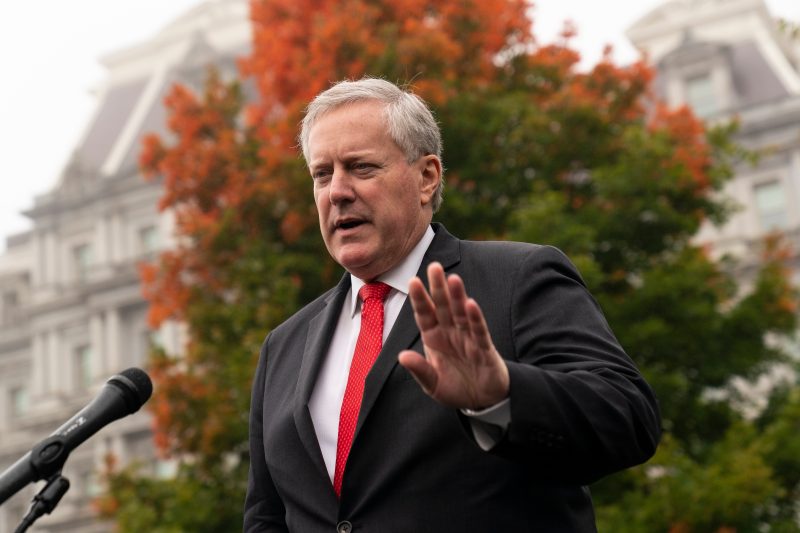
Federal Judge Stands Firm: Mark Meadows’s Arizona Charges Remain in State Court!
As the legal woes surrounding the contentious 2020 General Election persist, former White House Chief of Staff Mark Meadows has found himself facing scrutiny under the state court system in Arizona. In a recent ruling, a federal judge has determined that charges against Meadows will remain in the state court—a decision that could have far-reaching implications.
Mark Meadows, who served as the Chief of Staff under the Trump administration from March 2020 to January 2021, has been accused of attempting to subvert the 2020 General Election results in Arizona. Though these accusations are not without their fair share of controversy, the judicial response thus far has proven to be decisive. Despite various appeals aimed at transferring the case, the ruling by a prominent federal judge has ensured that Meadows will face these charges in Arizona’s state court.
A change of venue to a state court can impact the case greatly and the decision by the federal judge signifies the gravity of the situation. This implies that the federal system – renowned for its meticulous research and emphasis on procedural rectitude – deemed the state of Arizona better equipped to handle the case. This could be due to a variety of factors, including pertinent local law or the involvement of state officials. Nonetheless, the Arizona court system will bear the responsibility for ensuring a fair and just trial.
The charges faced by Meadows centre on allegations that he interfered with the 2020 election process. They suggest that he used his political clout to pressure officials in Arizona to overturn the election results, a process deemed unconstitutional and highly illegal. By deciding on the state venue, the judge has ensured these serious accusations are dealt with by the very state they directly impacted.
This decision underscores the importance of state rights and federalism in the United States. While federal courts typically deal with crimes and civil suits of a national scale, state courts routinely handle cases that occur within their jurisdictions. In this instance, it allows the state where the alleged illicit activity happened to try the case, fulfilling a crucial tenet of the U.S. justice system wherein ‘justice can best be carried out locally.’
While the decision to keep the charges against Meadows in Arizona does not ensure a guilty verdict, it does raise the stakes on the case. A state court adjudicating the case presents not only the potential for local dynamics to weigh heavily on the proceedings, but also emphasizes the importance of local body politics being respected.
The development of Meadows’ case through the Arizona court system is undoubtedly a story of considerable legal and political significance. By letting this course play out at a state level, the federal judiciary illustrates their trust in the subsidiary jurisdictions, tacitly emphasizing the importance of states rights in navigating the country’s complex legal landscape.
The upcoming court proceedings will likely become a focal point for both legal enthusiasts and political observers, making it a noteworthy case to follow as it unfolds. Legal scholars and political pundits will keep a watchful eye on the ongoing proceedings, as they will undoubtedly have far-reaching implications on the discourse surrounding election integrity and federal-state relationships in the U.S.
Overall, by deciding to leave the charges against Meadows in Arizona’s state court, the federal judiciary has furthered its commitment to the principles of federalism and state sovereignty. As the case progresses, it will serve as a tangible exemplar of these democratic principles in action.
